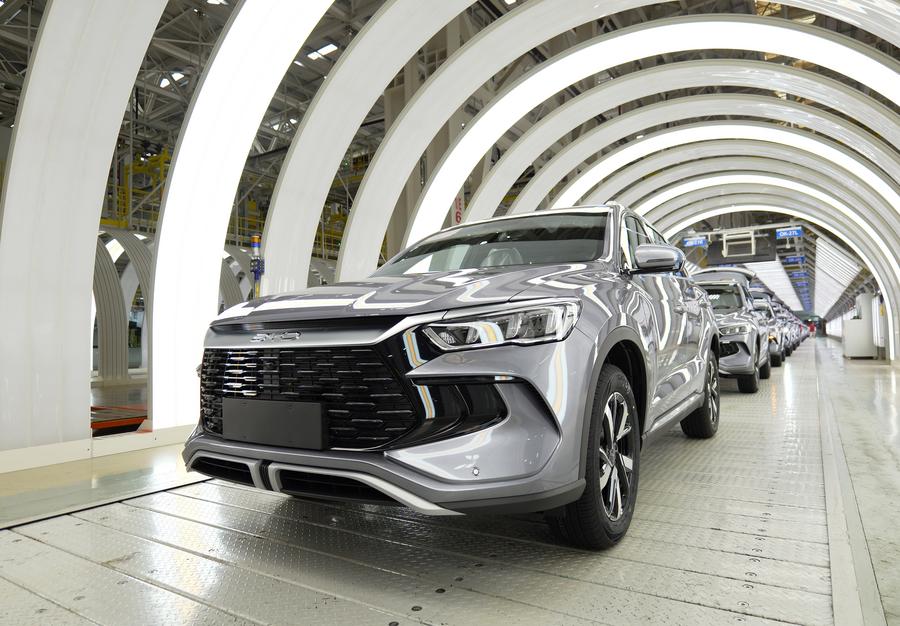Commentary: EU's best-laid plan for economic boom is teaming with China

This photo taken on April 24, 2024 shows a new energy vehicle (NEV) assembly line of BYD, China's leading NEV manufacturer, at the plant of BYD in Zhengzhou, central China's Henan Province. (Xinhua/Li Jianan)
BEIJING, June 12 (Xinhua) -- Despite China's repeated and earnest calls for resolving trade friction through dialogue, the European Commission unveiled on Wednesday its plan to levy provisional additional tariffs of up to 38.1 percent on Chinese-made electric vehicles (EVs), a move that is almost certain to undercut the momentum of bilateral economic cooperation.
Although the EU spent several months mulling over the tariff issue and delayed the announcement for several days, the decision is still far from being wise, given the crucial nature of China-EU relations and their extensive economic and trade collaborations.
The European Commission chose to announce the decision after the conclusion of the European Parliament elections, revealing the nature of the anti-subsidy probe as a politically motivated move. Leading European automakers have repeatedly voiced their opposition against the additional tariff plan.
Prominent European political figures, including German Chancellor Olaf Scholz, also opposed the tariff hikes, calling for free trade. The EU, which often falls victim to trade protectionist measures from countries like the United States, has claimed itself to be a strong advocate of open and fair trade. However, its decision today is nothing but self-contradictory.
As major open markets and proponents of globalization, China and the EU have industrial, supply and value chains that are intricately interwoven, rendering them mutually indispensable. This is vividly illustrated in the automotive sector. European car brands enjoy considerable favor among Chinese consumers. Meanwhile, Chinese automakers have, after years of investment and technology upgrading, garnered an advantage in electric vehicles, and have gained trust, popularity and admiration among European consumers.
The EU should have respected the prowess of the Chinese EV industry, whose integrity and expertise cannot be denied. Self-interested actions would ultimately defeat their own purpose. The burden of protectionism advocated by a few politicians would ultimately fall on ordinary citizens, increasing their financial strain and lowering their quality of life. It will also disrupt the EU's green transformation agenda and global collaboration efforts in tackling climate change. Such outcomes are undesirable for all parties involved.
China and the EU are the world's second- and third-largest economies. They are each other's second-largest trading partners, with trade volume translating to an exchange of about 1.5 million U.S. dollars per minute.
Disputes and frictions may be inescapable between different economies. But in light of their economic structure and sheer size, China and the EU are best served by teaming up on major economic and trade issues. It would be more cost-effective for the EU to draw on China's advantages in order to develop its own EV industry.
The trade and economic relations between the EU and China are at an important crossroads, and it is crucial for the EU to demonstrate a strategic and long-term vision. The regional bloc seemed to have left some room for the two sides to continue their consultations to find a proper solution and avoid the worst scenario. It is hoped the EU will make some serious reconsideration and stop going further in the wrong direction.
Photos
Related Stories
- EU tariff decision on Chinese EVs denounced
- China calls for efforts toward effective European security architecture
- China hopes EU will stay committed to free trade, oppose protectionism: spokesperson
- Chinese commerce minister urges dialogue to resolve China-EU trade frictions
- Shared passion for delicacies fuels China-EU agricultural trade
Copyright © 2024 People's Daily Online. All Rights Reserved.









